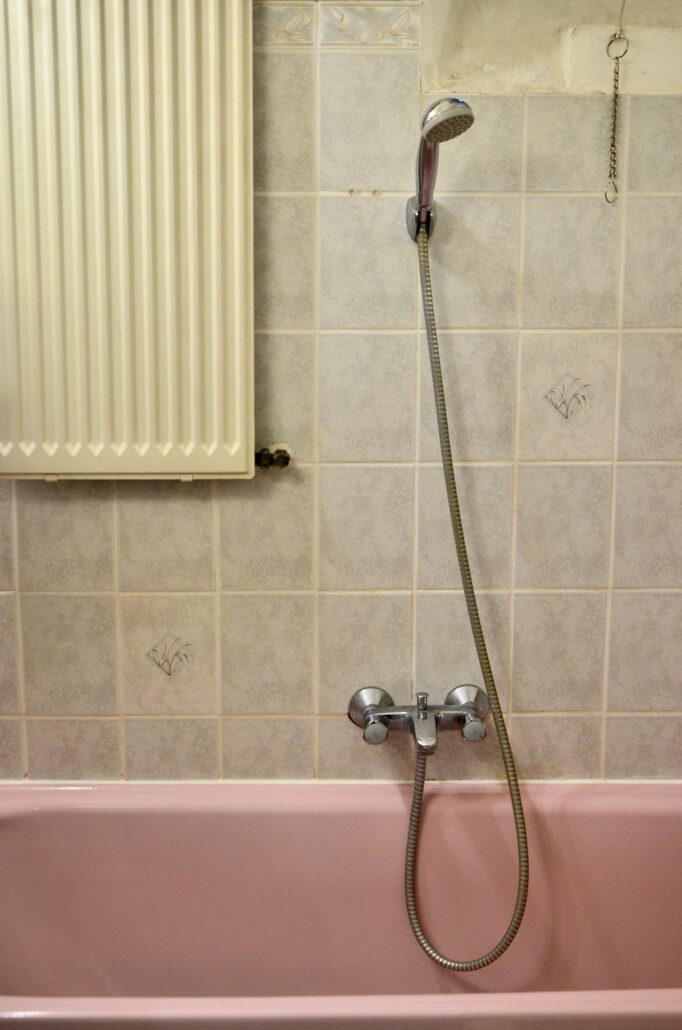by Patrick McNerthney
Up until quite recently – oh let’s call it 2019 – I had this very bad habit of pretending to have figured things out when, in reality, I didn’t know the answer.
For example, at work, when a new twist to a marketing problem came up, or even an old twist, I typically acted like I could work through it very quickly and was thus super smart and capable and awesome and worthy of a raise. Then, secretly, behind closed doors, I’d be all stressed out, running around frantically searching for the solution. This may seem shocking, based on my oozing charm and genius, but I actually did not possess magic powers that made me smarter or better than anyone else.
This same weird attitude carried over to my home life:
Fridge broken? Must be the condenser honey, I can fix that! (I had absolutely no idea if that was the problem or how to fix it.)
Shower head needs replacement? You got it, I’m your man!
(I don’t own a wrench. Or even a screwdriver. Those would be the preferred tools, right??)
Portable air conditioner needs to be installed in our son’s bedroom? Go take a nap, I’ll have it done in jiffy! (It’s going to be so hot. We’re doomed.)
 (My archnemesis.)
(My archnemesis.)
Of course, inevitably, I end up calling:
Appliance repair guy
Snooty Plumber
My brother-in-law
respectively.
So the real question is, why would anyone pretend to know how to do something, when they really don’t? What’s the big deal?
In the first case, even though it’s unrealistic, I expect myself to be able to solve any problem, to the point where I’ll pretend to know everything and not ask for help – even when – apparently especially when – I really need it. Thus, perhaps a fear of being vulnerable is in play, combined with a societal ethic that reveres rugged individualism, not teamwork.
In the second case, I’m a sensitive little flower and I don’t want to add to my wife’s arsenal of topics with which she can make fun of me with our friends. Even though it’s funny. Thus, pride and ego are at play, and a little bit of stubbornness on my part (just a teeny bit).
If you look closely, you will see there is a common thread that weaves throughout both of these responses: a brittle (much like peanut brittle, minus the sweet part) response to both the problem and the (real or perceived) criticism associated with the solution.
 (Yum.)
(Yum.)
Here’s how it works. Most of us have to deal with one of the following forms of criticism on a daily basis (or sometimes, all of them simultaneously):
- Real external criticism (from a boss, coworker, customer or loved one)
- Imagined or feared external criticism (from these same people, which never actually comes to pass)
- Internal criticism (i.e. not giving ourselves the grace to be imperfect)
Regardless of the kind of criticism we face, it’s counterproductive to adopt a brittle attitude in response. In fact, if I had heard “but you’re not really good at this” during any of the situations I’ve described above, and actually reflected on the statement, I might have been motivated to find out how to actually solve the problem.
Here’s the rub: In the examples I’ve provided from my life, “solving the problem” might involve:
- Putting in extra hours at work to gain knowledge
- Watching lots of home repair shows on YouTube
- Or my absolute favorite, and I mean it – deciding not to take myself so seriously and ask for help.
Over to you. What are you being like peanut brittle about? What can you do to “get better at it?” Do you need to ask for help?
Fine Art Miracles is all about that last question. We’re a resource for caregivers who want to solve the problem of social isolation in vulnerable populations in new and engaging ways.
Creative expression is an avenue for the elderly, children with challenges and other vulnerable populations to gain confidence, engage with their community, demonstrate mastery, and develop a sense of relevance and self-worth. Check out our Art Therapy, Dance & Movement Therapy, and Music Therapy classes if you think you’d benefit from a new perspective on how to help your residents and loved ones. The solution may be that simple, and of course we’re happy to answer any questions you may have -please don’t hesitate to reach out!
Well, I’m obviously not good at home repairs, and to be honest, I have no desire to learn how to get better. However, the idea of learning how to make peanut brittle is quite appealing – I think I”ll go find a YouTube channel for that!

